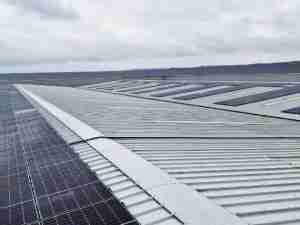TruStar Energy opens public CNG fueling station in Tulsa
posted by AJOT | Aug 17 2015 at 07:55 AM | Intermodal
Company eyes high-traffic corridors for company-branded public fueling station expansion
Tulsa, OK - TruStar Energy, one of the nation’s leading developers of Compressed Natural Gas (CNG) fueling stations, announced today that it has opened a TruStar Energy-branded public CNG fueling station in Tulsa, Oklahoma. Located in a heavy truck traffic corridor, the 24/7 CNG fast-fill station is capable of fueling several hundred vehicles a day and promises to deliver lower fueling cost and reduced transportation-related emissions to the Tulsa area.
“Fueling infrastructure remains a challenge to wider adoption of CNG in the trucking industry—and we are in business to change that. An accessible network of CNG stations will incentivize more fleet owners to make the shift away from diesel and extend the range of CNG-powered fleets already on the road today,” said Adam Comora, President of TruStar Energy. “We have embarked on a strategy to open dozens of company-branded public CNG stations along high-traffic U.S. corridors over the next several years—our Tulsa station is added to that growing list.”
TruStar Energy is building dozens of CNG stations across the country and opened its first company-branded public fueling station in Orlando in July. By aggressively expanding America’s network of CNG fueling stations, TruStar Energy is ushering in a new era of economic strength, lower carbon emissions and increased energy security, while keeping jobs and revenues here at home.
The new TruStar Energy CNG station at 5011 S. Vandalia Avenue has two traffic lanes and two fast-fill fueling pumps, providing easy access for commercial vehicles and private CNG-powered consumer vehicles. The station is supplied by natural gas from Apache Corporation and accepts commercial fuel cards such as Comdata or Fuelman as well as all major credit cards.
“Tulsa has a high volume of CNG vehicles and our new station is located close to several major fleets, making it a valuable, profitable and productive resource for businesses in the area,” remarked Scott Edelbach, General Manager of TruStar Energy.
Fleets that run on CNG have lower exhaust and carbon emissions compared to diesel and gasoline. Plus, natural gas engines have an average of 80 percent to 90 percent lower decibel level than diesel engines. CNG is also insulated from price volatility due to international conflicts and events, which in recent years has been responsible for dramatic price fluctuations for gasoline and diesel.
